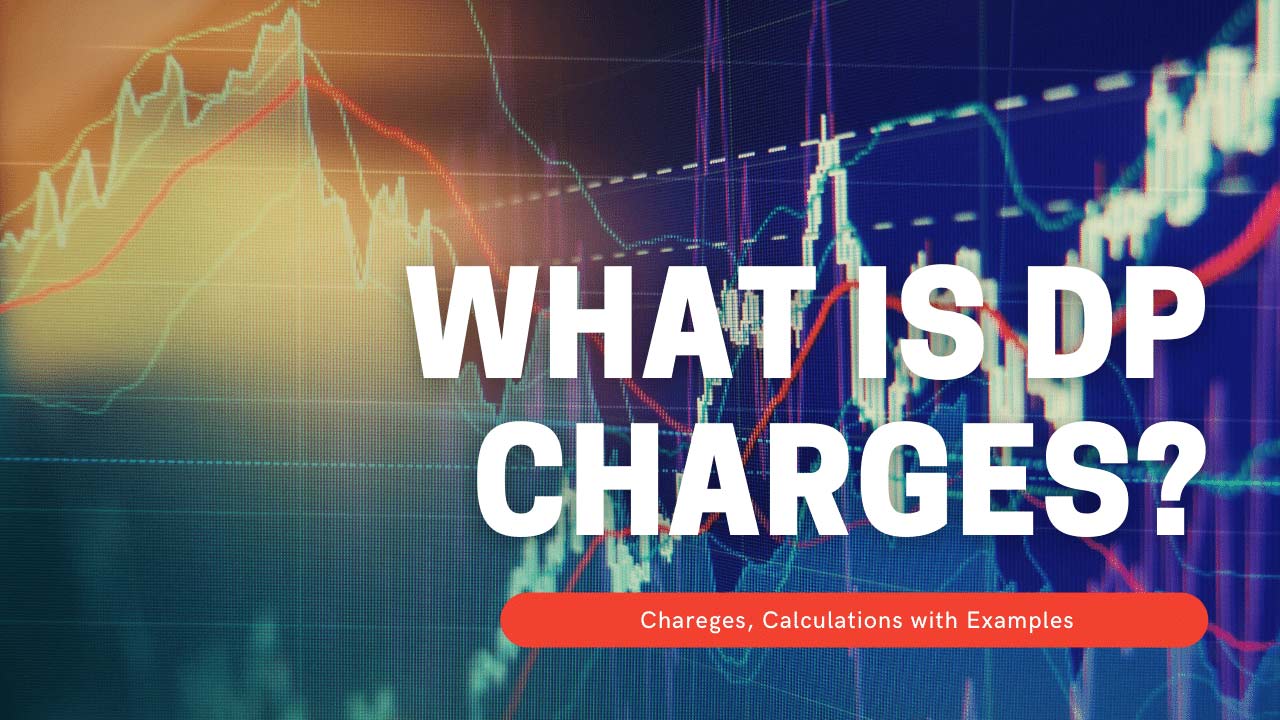As a trader it is very important for us to understand the different charges we pay while executing our trades. One of such charges is DP charge that we pay each and every time when we sell any shares from our holdings.
In this blog post I will solve all your queries regarding what is DP charges?, how it is calculated with examples. So let's begin!
What is DP charges?
DP charges are the fees charged by Depositories and their Participants. All sell transactions you made with your Demat Account are subject to Depository Participant (DP) charges.
These costs are in addition to brokerage expenses and are not mentioned in your contract notes. Depositories and Participants of depositories make money through DP charges.
The main objective of DP charges is to cover their operating costs and generate revenue for themselves, instead of charging fees directly from customers, they charge you through your broker.
Brokers in turn collect commissions on every transaction that are passed on to clients along with other service or brokerage fees. Some brokers will levy additional charges on their customers, while others will absorb these charges in the interest of retaining a customer.
DP charges are a flat transaction charge and it does not change depending on the quantity you sold. For example, if you sell 1000 quantity shares of a particular stock or 100 quantity shares of that same stock, the DP charges will remain the same.
Because the fee is calculated based on each stock rather than per volume sold, as a consequence, these costs stay constant whether you sell one or a hundred stocks.
How are DP Charges calculated?
Whenever you sell shares from your portfolio i.e from your Demat account, the Depository (CDSL or NSDL) and the Depository Participant (brokerage firm) charge Rs. 13.5 (plus 18% GST) per day per stock.
For example, You have shares of company A, in your Demat account. Suppose, you have sold 100 quantity shares of company A in the morning hours and again sold 100 quantity of shares of the same company A in the afternoon.
Now, since you have sold the same company shares during the day and DP charges do not consider volume so your overall DP charges for the day will be Rs. 13.5 (plus 18% GST).
If you sell 100 quantity of shares of company A in the morning and 100 quantity of shares of company B in the afternoon, then your DP charges will be Rs. 13.5 + Rs. 13.5 (plus 18% GST), since you have sold shares of two different companies.
Is it Mandatory to pay DP charges?
Yes, you must pay DP charges for each sell transaction, even if it is just one quantity share.
If your broker absorbs the cost on behalf of his clients then there will be no separate charge levied by them i.e there won't be any kind of pass-through fee charged but this would depend entirely upon the broker's policy.
If you are asked to pay the DP charges by your brokers make sure to ask for the calculation behind it and if there is any hidden charge levied on you that is not mentioned in any of the contract notes.
Note:
- DP charges are posted directly to the ledger. They are not recorded on the note of the contract. The charges are charged one time per scrip, on a single day regardless of the quantity sold.
- In the case of BTST transactions, because the shares are credited to your Demat account and later debited, you will incur DP charges similar to regular delivery transactions.
Who imposes DP charges?
The depository participant and the depositories both impose the fees known as depository participant (DP) charges. If the stock is included in the Nifty index, National Securities Depository Limited (NSDL) charges the fees.
Whereas, If the stock is listed on the Bombay Stock Exchange, the tax is levied by Central Depository Services Limited (CDSL).
A depository participant (Brokerage firm) is a middleman for depositories and investors. Depository participants include banks, brokerage firms, and other financial institutions.
DP charges are frequently used by depository participants to make money on their customers. Since the fees are not part of your contract note, most people do not know that they are being charged these fees and end up paying more than necessary in brokerage commissions.
What is the need for DP charges?
To open a Demat account for clients, a stockbroker must first become a depository participant.
Furthermore, they must pay a membership fee of lakhs to NSDL or CDSL as well as various additional set fees and prepayment transaction costs.
Thus, the brokers also charge a fee to their clients to recover these expenses.
Conclusions
If you're considering investing in the stock market, it is important to know about the different charges to trading. The charges involved include brokerage commissions, transaction fees, and DP charges.
DP charges typically refer to the fee that is charged by NSDL or CDSL for holding your securities in their electronic form i.e Demat account.
The depository participant (brokerage firm) has to pay this charge on behalf of you. However, the charge is not a pass-through charge, i.e it doesn't directly get added to your contract note and you don’t have the option of opting out from them.
You must be aware that both NSDL as well as CDSL levy these charges on Demat accounts at various intervals throughout the financial year based upon the number of transactions carried out.
This is from our end regarding the DP charges. Tell us your opinions in the comments section.
FAQs
How to avoid DP charges in Zerodha?
You can not avoid DP charges in Zerodha. Whenever you sell any stocks from your holdings or say Demat account, you have to pay your DP charges.
What is the lowest DP charges?
Currently the lowest DP charge is Rs. 13.5 (Plus 18% GST). However, there may be some additional charges levied on it by your broker, as a broker acts as a middleman between you and the Depositories.
What is DP charge for Intraday Selling?
For Intraday selling there is no DP charges, DP charges are only levied on positional selling i.e. selling shares from your Demat account.




